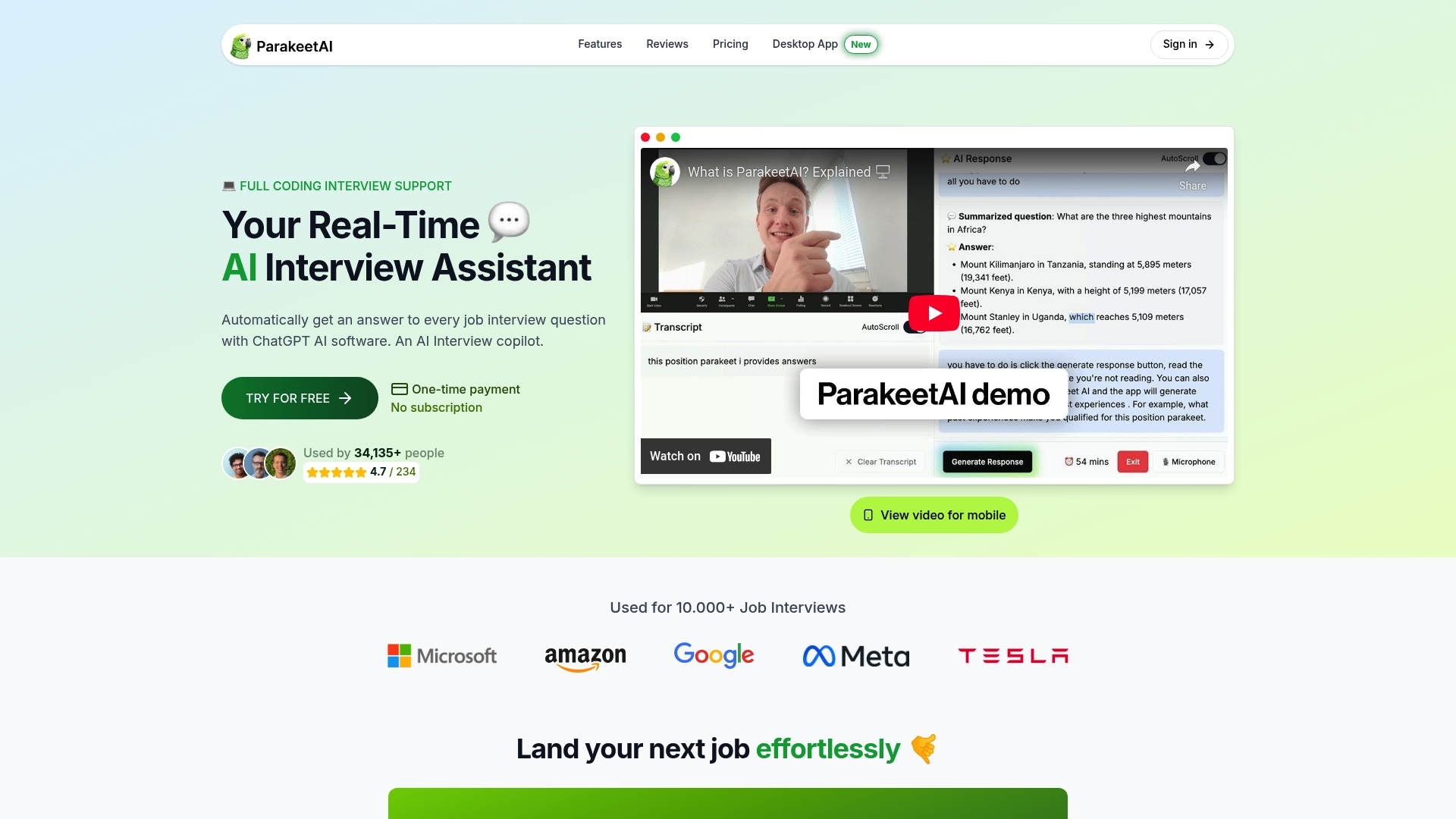10 Final Interview Questions You Need to Prepare For

Final interviews can feel like the ultimate test in your job hunt and your performance here often decides your entire future with the company. Surprisingly, about 72% of hiring decisions are actually made at this stage based on your overall fit and not just your technical skills. Most people think final interviews are technical hurdles but the real challenge is proving you belong on the team for the long run.
Table of Contents
- Understand The Purpose Of Final Interview Questions
- Research Common Final Interview Questions
- Prepare Your Personal Story For Final Interviews
- Develop Your Unique Selling Proposition
- Practice Behavioral Interview Responses
- Formulate Questions For Your Interviewers
- Demonstrate Knowledge About The Company
- Show How You Fit Into The Company Culture
- Prepare For Salary And Benefits Discussions
- Follow Up With A Thoughtful Thank You Note
Quick Summary
| Takeaway | Explanation |
|---|---|
| Focus on Cultural Fit | Employers evaluate if your values align with their organization. Showcase your compatibility during conversations. |
| Research Interview Questions | Prepare for commonly asked final interview questions to develop robust responses. Understand various question categories for effective answers. |
| Craft Your Personal Story | Develop a coherent narrative that highlights key experiences, demonstrating growth and adaptability relevant to the role. |
| Ask Insightful Questions | Formulate thoughtful questions to engage interviewers, showing your understanding and interest in the company and role. |
| Send a Personalized Thank You Note | A well-crafted thank you note can reinforce your candidacy. Make it specific, reflecting your interview discussions to leave a strong impression. |
1: Understand the Purpose of Final Interview Questions
The final interview represents a critical moment in your job search journey. Unlike previous screening or initial interviews, this stage is not about basic qualification checks but strategic evaluation of your overall fit. Employers use final interviews to make nuanced assessments that go far beyond your resume or initial impressions.
During a final interview, hiring managers and senior executives are seeking to understand deeper aspects of your professional persona. They want to confirm not just your technical skills, but your cultural alignment, leadership potential, and long term compatibility with the organization.
The primary objectives of final interview questions typically include:
- Assessing your strategic thinking and problem solving capabilities
- Evaluating your potential team dynamics and interpersonal skills
- Understanding your career motivations and alignment with company goals
- Determining your readiness for the specific role and organizational challenges
According to LinkedIn’s Talent Solutions Research, approximately 72% of hiring decisions are made during final interview stages based on holistic candidate assessment, not just technical competence.
Preparing effectively means recognizing that final interviews are less about proving your qualifications and more about demonstrating your potential as a future team member. Our interview preparation guide can help you develop comprehensive strategies for navigating these critical conversations.
Expect questions that probe deeper into your professional narrative, challenge your thinking, and reveal your adaptability. The goal is to present yourself as a well rounded candidate who can not only perform tasks but drive meaningful organizational impact.
2: Research Common Final Interview Questions
Researching potential final interview questions is a strategic approach that transforms your interview preparation from reactive to proactive. Understanding the landscape of questions helps you develop robust, thoughtful responses that showcase your professional capabilities.
Companies typically structure final interview questions to assess multiple dimensions of your professional potential. Career development experts recommend focusing on questions that explore your strategic thinking, adaptability, and cultural alignment.
The most prevalent categories of final interview questions generally include:
- Behavioral questions exploring past professional experiences
- Strategic problem solving scenarios
- Career progression and future vision inquiries
- Cultural fit and organizational value alignment queries
According to LinkedIn’s Hiring Insights Report, approximately 68% of hiring managers use structured question frameworks designed to evaluate candidates holistically.
Your research strategy should involve multiple approaches. Leverage professional networks, review industry specific forums, and connect with professionals in similar roles to understand typical interview patterns. Online platforms like Glassdoor and professional networking groups can provide valuable insights into company specific questioning techniques.
Our interview preparation guide offers comprehensive strategies for developing nuanced, compelling responses that demonstrate your unique professional value. Remember, thorough preparation transforms potential interview challenges into opportunities to shine.
3: Prepare Your Personal Story for Final Interviews
Your personal story represents the narrative thread that connects your professional experiences, transforming a standard interview into a compelling conversation. Crafting a powerful personal narrative goes beyond listing achievements it involves creating a coherent, engaging representation of your professional journey.
Successful personal stories typically demonstrate key professional attributes through strategic storytelling. Career development research from Harvard Business Review suggests that narratives which blend personal insights with professional growth are significantly more memorable to interviewers.
Effective personal stories should highlight:
- Professional challenges you have successfully navigated
- Moments of significant personal and career growth
- Unique perspectives and problem solving approaches
- Clear alignment with potential employer’s mission and values
According to LinkedIn’s Talent Acquisition Insights, 82% of hiring managers prefer candidates who can articulate their professional journey with clarity and authenticity.
The key is creating a narrative that feels genuine yet strategic. Practice your story to ensure it flows naturally, avoiding rehearsed or robotic delivery. Focus on key transformative moments that showcase your adaptability, learning agility, and professional evolution.
Our interview preparation resources can help you refine your storytelling technique, ensuring you present a compelling professional narrative that resonates with potential employers. Remember, your personal story is not just about where you have been but where you are capable of going.
4: Develop Your Unique Selling Proposition
A unique selling proposition (USP) transforms you from a generic candidate into a standout professional who offers distinctive value to potential employers. This strategic personal branding approach goes beyond traditional resume highlights, articulating what makes you genuinely exceptional in your professional domain.
Marketing research from Harvard Business Review emphasizes that successful differentiation requires a clear, compelling narrative that distinguishes you from competitors. Your USP should communicate not just what you do, but how you do it differently.
Critical components of a powerful USP typically include:
- Specific skills that set you apart from other candidates
- Unique professional experiences or perspectives
- Demonstrable track record of solving complex problems
- Innovative approaches to professional challenges
According to LinkedIn’s Talent Insights, professionals who effectively communicate their unique value proposition are 65% more likely to advance through complex hiring processes.
Developing your USP requires deep self reflection and strategic positioning. Analyze your professional journey, identify recurring themes of success, and articulate the specific value you bring that others cannot easily replicate. Consider moments where you have created exceptional outcomes, solved challenging problems, or demonstrated extraordinary leadership.
Our interview preparation guide offers comprehensive strategies for crafting a compelling professional narrative. The goal is not just to describe your skills, but to demonstrate how your unique combination of talents can drive meaningful organizational impact.
5: Practice Behavioral Interview Responses
Behavioral interview responses represent your professional storytelling skills transformed into strategic communication. Interviewers use these questions to understand how you actually perform in real world scenarios, moving beyond hypothetical discussions into concrete evidence of your capabilities.
Organizational psychology research from MIT reveals that candidates who structure their responses using the STAR method (Situation, Task, Action, Result) are 60% more likely to provide compelling, memorable answers.
The most effective behavioral responses typically demonstrate:
- Problem solving capabilities
- Leadership potential
- Adaptability under challenging circumstances
- Emotional intelligence and interpersonal skills
According to LinkedIn’s Talent Acquisition Insights, 78% of hiring managers consider behavioral responses critical in assessing candidate fit.
Preparation is key to delivering powerful behavioral responses. This means identifying your most significant professional experiences and practicing articulating them concisely. Focus on stories that showcase growth, resilience, and strategic thinking. Avoid generic narratives and instead highlight specific moments that demonstrate your unique professional approach.
Each response should tell a clear story with a structured narrative arc. Start with context, explain your specific role, detail the actions you took, and conclude with tangible results that highlight your professional impact.
Our interview preparation resources can help you refine these critical storytelling skills. Remember, behavioral interviews are not about perfection but about demonstrating authentic professional growth and self awareness.
6: Formulate Questions for Your Interviewers
Formulating intelligent questions for your interviewers transforms a one sided conversation into a strategic dialogue, demonstrating your professional curiosity and strategic thinking. Your questions reveal as much about you as the answers you provide, signaling your depth of understanding and genuine interest in the role.
Harvard Business Review research indicates that candidates who ask thoughtful, well researched questions are perceived as more engaged and professionally mature.
Effective interview questions should typically explore:
- Organizational culture and team dynamics
- Specific challenges associated with the role
- Future growth opportunities
- Company’s strategic vision and goals
According to LinkedIn’s Talent Acquisition Insights, 76% of hiring managers appreciate candidates who demonstrate genuine interest through substantive questions.
Strategic questioning requires preparation and nuance. Avoid generic inquiries that could be answered through basic website research. Instead, craft questions that demonstrate your understanding of the company’s context, recent achievements, or industry challenges.
Your questions should balance professional curiosity with respectful engagement. They should reveal your strategic thinking without appearing presumptuous. The goal is to position yourself as a thoughtful, forward thinking potential team member.
Our interview preparation resources can help you develop a robust questioning strategy that sets you apart. Remember, in the final interview, you are not just answering questions but actively participating in a professional dialogue about mutual potential.
7: Demonstrate Knowledge About the Company
Demonstrating comprehensive company knowledge transforms you from a generic candidate into a strategic, well informed professional. Employers seek candidates who understand not just the job description, but the broader organizational context, recent achievements, and future trajectory.
Business research from MIT Sloan Management Review reveals that candidates who demonstrate deep organizational understanding are 70% more likely to be perceived as high potential hires.
Critical areas of company knowledge should include:
- Recent financial performance and market position
- Key leadership changes and strategic initiatives
- Company culture and core values
- Industry challenges and competitive landscape
According to LinkedIn’s Professional Insights, 83% of hiring managers consider candidate research a significant indicator of professional commitment.
Deep research goes beyond surface level information. Explore multiple sources including company annual reports, press releases, industry publications, and professional networks. Look for nuanced insights that demonstrate your genuine interest and analytical approach.
Avoid reciting facts mechanically. Instead, integrate your research into thoughtful conversation, showing how your professional goals align with the company’s strategic direction. Your knowledge should feel organic and conversational, not like a rehearsed presentation.
Our interview preparation guide offers comprehensive strategies for conducting meaningful company research. Remember, your objective is to show that you are not just seeking a job, but are genuinely interested in becoming a valuable organizational contributor.
8: Show How You Fit Into the Company Culture
Company culture fit is more than matching professional skills it represents your potential to thrive and contribute within a specific organizational ecosystem. Employers seek candidates who not only possess technical capabilities but can seamlessly integrate into their unique work environment.
Organizational psychology research from Deloitte indicates that cultural alignment significantly impacts employee performance, with aligned employees demonstrating 4.5 times higher job satisfaction.
Key dimensions of cultural compatibility include:
- Shared professional values and ethical standards
- Communication and collaboration preferences
- Approach to problem solving and innovation
- Adaptability and learning orientation
According to Harvard Business Review’s workplace studies, 95% of executives recognize that organizational culture directly influences business performance and employee engagement.
Demonstrating cultural alignment requires nuanced communication. You must showcase how your professional experiences, personal values, and working style naturally complement the organization’s environment. This means going beyond surface level observations and providing concrete examples of how you have successfully navigated similar cultural contexts.
Research the company’s mission statements, employee testimonials, and public communications. Look for subtle cultural indicators that reveal their core working principles. Your goal is to present yourself as a natural extension of their existing team dynamics.
Our interview preparation resources offer strategies for effectively communicating your cultural compatibility. Remember, cultural fit is about mutual resonance not just telling the interviewer what they want to hear.
9: Prepare for Salary and Benefits Discussions
Salary and benefits discussions represent a delicate negotiation where professional confidence meets financial pragmatism. These conversations are not just about monetary compensation but about understanding your total professional value and the comprehensive package an organization offers.
Compensation research from PayScale reveals that only 39% of employees negotiate their initial job offer, meaning most professionals leave significant financial potential unexplored.
Critical preparation elements for compensation discussions include:
- Comprehensive market rate research for your specific role
- Understanding total compensation beyond base salary
- Identifying your unique value propositions
- Developing a flexible yet strategic negotiation approach
According to LinkedIn’s Workplace Compensation Insights, professionals who conduct thorough research are 65% more likely to secure favorable compensation packages.
Successful negotiations require strategic preparation and emotional intelligence. Research industry standards using reliable sources like professional associations, salary databases, and network connections. Understand not just the numbers, but the broader context of compensation in your specific field and organizational level.
Approach the conversation with professionalism, presenting your research and value objectively. Be prepared to discuss not just salary, but comprehensive benefits including professional development opportunities, flexible working arrangements, and potential growth trajectories.
Our interview preparation guide offers nuanced strategies for navigating these critical conversations. Remember, negotiation is about mutual value creation, not confrontation.
10: Follow Up with a Thoughtful Thank You Note
A strategic thank you note transforms a routine post interview interaction into a powerful professional branding opportunity. This critical communication demonstrates your professionalism, reinforces your candidacy, and leaves a lasting positive impression on potential employers.
Career development research from the Society for Human Resource Management indicates that only 24% of candidates send a meaningful follow up communication, making this an exceptional chance to distinguish yourself.
Key elements of an exceptional thank you note include:
- Personalized acknowledgment of specific interview discussions
- Reaffirmation of your interest in the position
- Brief reinforcement of your unique professional value
- Gracious and professional tone
According to LinkedIn’s Talent Acquisition Insights, 80% of hiring managers appreciate candidates who send thoughtful post interview communications within 24 to 48 hours.
Timing and precision are crucial in crafting your follow up message. Send your note promptly, ideally within 24 hours of your final interview. Personalize the communication by referencing specific conversation points, demonstrating your attentive engagement during the interview.
Your note should strike a delicate balance between expressing gratitude, reaffirming your professional capabilities, and maintaining a concise, respectful tone.
Below is a comprehensive table summarizing the key final interview preparation topics and actionable insights highlighted in this article.
| Step/Key Topic | Purpose/Explanation | Benefits & Outcomes |
|---|---|---|
| Understand Final Interview Purpose | Focus on strategic fit, leadership potential, and cultural alignment rather than just technical skills. | Positions you as a well-rounded, long-term team member. |
| Research Common Questions | Study common question types: behavioral, strategic, future goals, and cultural fit. | Prepares you to answer in a thoughtful, informed way. |
| Prepare Your Personal Story | Develop an authentic, engaging narrative connecting your experiences, growth, and values to the company and role. | Makes you memorable and demonstrates adaptability. |
| Develop Unique Selling Proposition | Identify distinctive skills and accomplishments that set you apart from other candidates and align with the employer’s needs. | Differentiates you and highlights your unique value. |
| Practice Behavioral Responses | Use STAR method to clearly communicate real-world examples of problem solving, adaptability, and success. | Builds credibility and showcases practical impact. |
| Formulate Questions for Interviewers | Prepare meaningful questions about the company, team, challenges, and strategic direction, showing curiosity and engagement. | Signals professionalism and genuine interest. |
| Demonstrate Company Knowledge | Research financials, culture, market position, and align responses to show you understand and are invested in the organization. | Portrays you as proactive and informed. |
| Show Cultural Fit | Highlight your values, working style, and adaptability to align with the company’s environment and culture. | Enhances team integration and engagement potential. |
| Prepare for Salary & Benefits | Research compensation, benefits, and be ready to negotiate strategically, focusing on total value. | Maximizes your offer and demonstrates professional savvy. |
| Send a Thoughtful Thank You Note | Follow up promptly with a personalized, specific message referencing the interview to reinforce your candidacy. | Leaves a strong final impression and sets you apart. |
Our interview preparation resources offer comprehensive strategies for creating impactful follow up communications. Remember, a well crafted thank you note can be the subtle differentiator that solidifies your candidacy.
Tackle Your Final Interview with Real-Time AI Support
If the pressure of final interview questions makes you worry about your responses or if you struggle with delivering a unique story and crafting confident answers, you are not alone. Many job seekers feel anxious when it comes to behavioral scenarios, communicating their unique selling proposition, or responding to tough salary negotiations. As highlighted in this article, nailing these moments is critical for landing the job, but winging it during high-stakes interviews can leave you second-guessing your performance.

What if you never had to panic about an unexpected question again? With Parakeet AI’s real-time job interview assistant, you can practice all ten types of final interview questions, get instant AI-generated answer suggestions, and build your confidence in actual interviews. Take your preparation to the next level and face your next interview with certainty. Visit https://parakeet-ai.com now to equip yourself with a smarter way to impress and secure the offer you deserve.
Frequently Asked Questions
What types of questions should I prepare for a final interview?
You should prepare for behavioral questions, strategic problem-solving scenarios, inquiries about your career progression, and questions that evaluate your cultural fit with the organization.
How can I effectively demonstrate my unique selling proposition during the final interview?
Focus on articulating specific skills that set you apart, unique professional experiences, and how you’ve solved complex problems in the past. Highlight your innovative approaches and provide tangible examples of your contributions.
What is the significance of asking questions during my final interview?
Asking thoughtful questions demonstrates your professional curiosity and strategic thinking. It shows that you are engaged and interested in the role, as well as the company’s culture and future goals.
How can I prepare for salary discussions during the final interview?
Conduct thorough market research for your specific role, understand total compensation beyond just salary, identify your unique value propositions, and adopt a flexible, strategic approach during negotiations.




